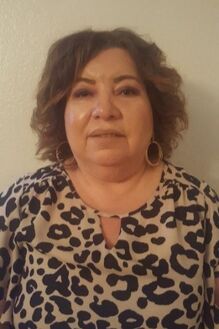 Elvia Alcala, lifestyle coach for CDC’s National DPP lifestyle change program Elvia Alcala, lifestyle coach for CDC’s National DPP lifestyle change program Seeing results firsthand is what motivated Elvia Alcala to become a lifestyle coach for CDC’s National Diabetes Prevention Program (National DPP) lifestyle change program. Elvia speaks from her own personal experience with type 2 diabetes to motivate her family and the Hispanic/Latino community to get healthier. Her mother died as a result of diabetes complications, and several of her family members have diabetes. Both Elvia and her sister have prediabetes, a condition which means your blood sugar levels are higher than normal but not yet high enough for a type 2 diabetes diagnosis. Prediabetes can lead to type 2 diabetes and other health complications like heart disease and stroke. Participating in the National DPP lifestyle change program was what Elvia needed to improve her health for the long term. The program helped Elvia lower her blood sugar levels, cholesterol, and blood pressure not only while she was participating, but also long after she’d finished the program. She used to go to the doctor every 3 months, and now she goes every 6. “The changes that I made have not only benefited me, but also my husband, my family, and the groups we are training,” she says. Elvia admits that change does not come easily. Determination and being able to prioritize her own health have helped her through her journey. When coaching other people through the program, she tells them that perseverance is key and encourages them to stick to the program, even if they have a bad day. “I tell them that if they feel stressed and hungry, they can eat fruits or veggies, like I do. I also tell them to try to include some movement in their day, even if it’s dancing in their own backyard. I do Zumba by myself or with my daughter. As a coach, I need to be an example, I have to take care of myself,” Elvia says. Even as a coach for the program, Elvia is not perfect. She gained 6 pounds earlier this year after a disruption to her normal routine and having to spend more time at home. But since then, she’s lost 3 of those extra pounds. Elvia says she encourages people to make small changes to their daily routines. She says that she does not like to talk about “diets” but rather “eating better.” “If you say the word diet, people react negatively,” she says. Instead, for a family gathering, ask people to bring healthier options like salad or vegetables instead of fried chicken and plantains. Another tip she has shared with some of her participants is to bring their lunch to work. “One participant liked to stop at a nearby gas station to get tacos and coffee every day,” she says. “Her cholesterol was very high, and I suggested she should bring her lunch to work. She did, and one month later her numbers had gone down.” This November for National Diabetes Month, Elvia has something she wants everyone at risk for type 2 diabetes to know: “I used to feel trapped, but now I feel free and confident in myself,” she says. “You have to put yourself first. We can’t love others if we don’t love ourselves first. Our families and friends love us, and they want to have us around for a long time.” You can be like Elvia and reduce your risk for developing type 2 diabetes. Learn more about the CDC’s National Diabetes Prevention Program here.
0 Comments
Your comment will be posted after it is approved.
Leave a Reply. |
The National Center for Farmworker HealthImproving health care access for one of America's most vulnerable populations Archives
March 2024
Categories
All
|

 RSS Feed
RSS Feed